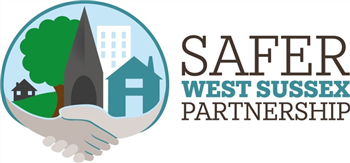Domestic Abuse Related Death Reviews
What a Domestic Abuse Related Death Review (DARDR) is and when it occurs.
About Domestic Abuse Related Death Reviews
The Safer West Sussex Partnership has responsibility for undertaking Domestic Abuse Related Death Reviews (DARDRs). These were previously called Domestic Homicide Reviews (DHRs).
DARDRs take place when the death, including a suicide, of a person aged 16 or over has, or appears to have, resulted from violence, abuse or neglect by:
- a relative
- a household member
- someone the person had been in an intimate relationship with.
A DARDRs purpose is to:
- review the circumstances leading to the death
- consider where responses can be improved in the future
- identify any best practice to share.
Background to the name change
In June 2023 the Home Office launched a public consultation, one element of which sought responses in regard to the naming of Domestic Homicide Reviews (DHRs).
The consultation considered whether the term ‘homicide’ should be amended in DHRs to reflect the range of the deaths which fall within the scope of a review, such as suicides related to domestic abuse, and other domestic abuse related deaths.
This was in response to feedback that the term ‘homicide’ can be confusing for bereaved families and friends as well as practitioners when reviewing a case that has not been ruled a homicide.
Following the consultation, the Home Office confirmed that DHRs would be renamed to Domestic Abuse Related Death Reviews (DARDRs) and tabled an amendment to the Victims and Prisoners Bill.
The Victims and Prisoners Bill received Royal Assent on 24 May 2024 and the name change has been confirmed at Part 1 Section 19 of the Victims and Prisoners Act 2024.
Aims
A Domestic Abuse Related Death Review aims to:
- establish what lessons can be learnt about how local professionals and organisations work individually and together to safeguard victims
- identify clearly:
- what those lessons are, both within and between agencies
- the timescales they will be acted on
- what is expected to change to reduce the risk of similar events.
- apply the lessons to service responses, including changes to policies and procedures, as appropriate.
- help services work to prevent domestic violence and improve service responses for all victims and their children through improved intra- and inter-agency working.
A DARDR is not an inquiry into how someone died or who is to blame. It is not part of any disciplinary process.
They are an addition to, not in replacement of, an inquest or any other form of inquiry into the death.
You can access statutory guidance for the conduct of reviews on the Home Office website.
Process
If a domestic abuse related death is thought to have occurred in West Sussex, Sussex Police, or another agency, notify the Safer West Sussex Partnership. A decision will be made about whether to complete a DARDR using the Home Office statutory guidance.
A multi-agency review panel, led by an independent chair, is established for each review and comprises members of local statutory and voluntary agencies. In doing this, professionals and agencies involved, such as the police, the voluntary sector, local authorities and health agencies or professionals will progress any recommendations made by the review.
The Safer West Sussex Partnership publish reports of local domestic abuse related death reviews. In accordance with the statutory guidance, reports are anonymised to protect the identity of individuals subject to the review.
Statutory DARDR reports
2022
- 001 Adult A overview report (13 June 2022) (PDF, 322KB)
- 002 Adult A overview report (19 July 2022) (PDF, 322KB)
- 002 Adult A multi-agency action plan (19 July 2022) (PDF, 186KB)
- 003 Mrs NKuna executive summary (5 December 2022) (PDF, 261KB)
- 003 Mrs NKuna overview report (5 December 2022) (PDF, 831KB)
2023
- 004 Miss P executive summary (12 January 2023) (PDF, 223KB)
- 004 Miss P overview report (12 January 2023) (PDF, 502KB)
- 005 Adult A executive summary (28 February 2023) (PDF, 135KB)
- 005 Adult A overview report (28 February 2023) (PDF, 277KB)
- 005 Adult A resubmission feedback letter (28 February 2023) (PDF, 103KB)
- 006 Laura executive summary (11 May 2023) (PDF, 232KB)
- 006 Laura overview report (11 May 2023) (PDF, 442KB)
- 006 Laura resubmission feedback letter (11 May 2023) (PDF, 125KB)
- 007 Nicola executive summary (13 June 2023) (PDF, 332KB)
- 007 Nicola overview report (13 June 2023) (PDF, 439KB)
- 007 Nicola resubmission feedback letter (13 June 2023) (PDF, 147KB)
- 008 Louise learning review (28 July 2023) (PDF, 211KB)
2024
- 009 Adult A, Child 1 and Child 2, and Adult B executive summary (March 2024) (PDF, 363KB)
- 009 Adult A, Child 1 and Child 2, and Adult B resubmission feedback letter (March 2024) (PDF, 130KB)
- 010 Emma executive summary (17 July 2024) (PDF, 309KB)
- 010 Emma overview report (17 July 2024) (PDF, 758KB)
- 010 Emma resubmission feedback letter (15 January 2024) (PDF, 136KB)
Advice and information
Advocacy After Fatal Domestic Abuse (AAFDA) provide emotional, practical and specialist peer support to those left behind after fatal domestic abuse related death.
The charity also provides information and advice for professionals.
For details, see their downloadable resources.
